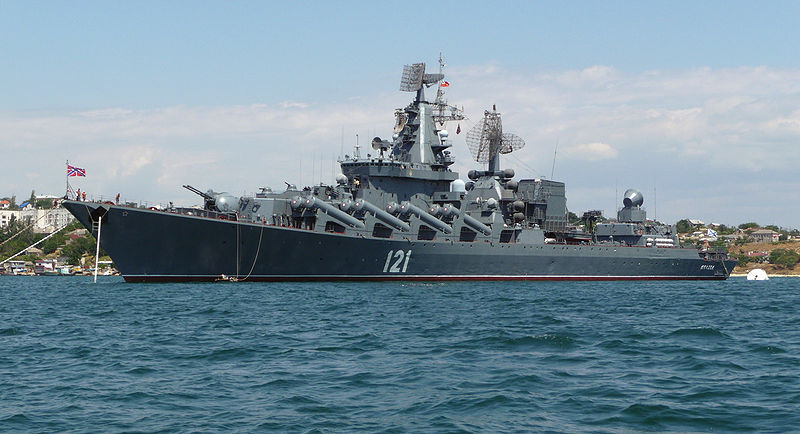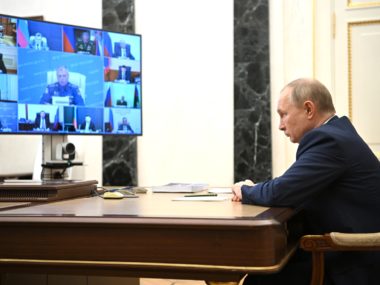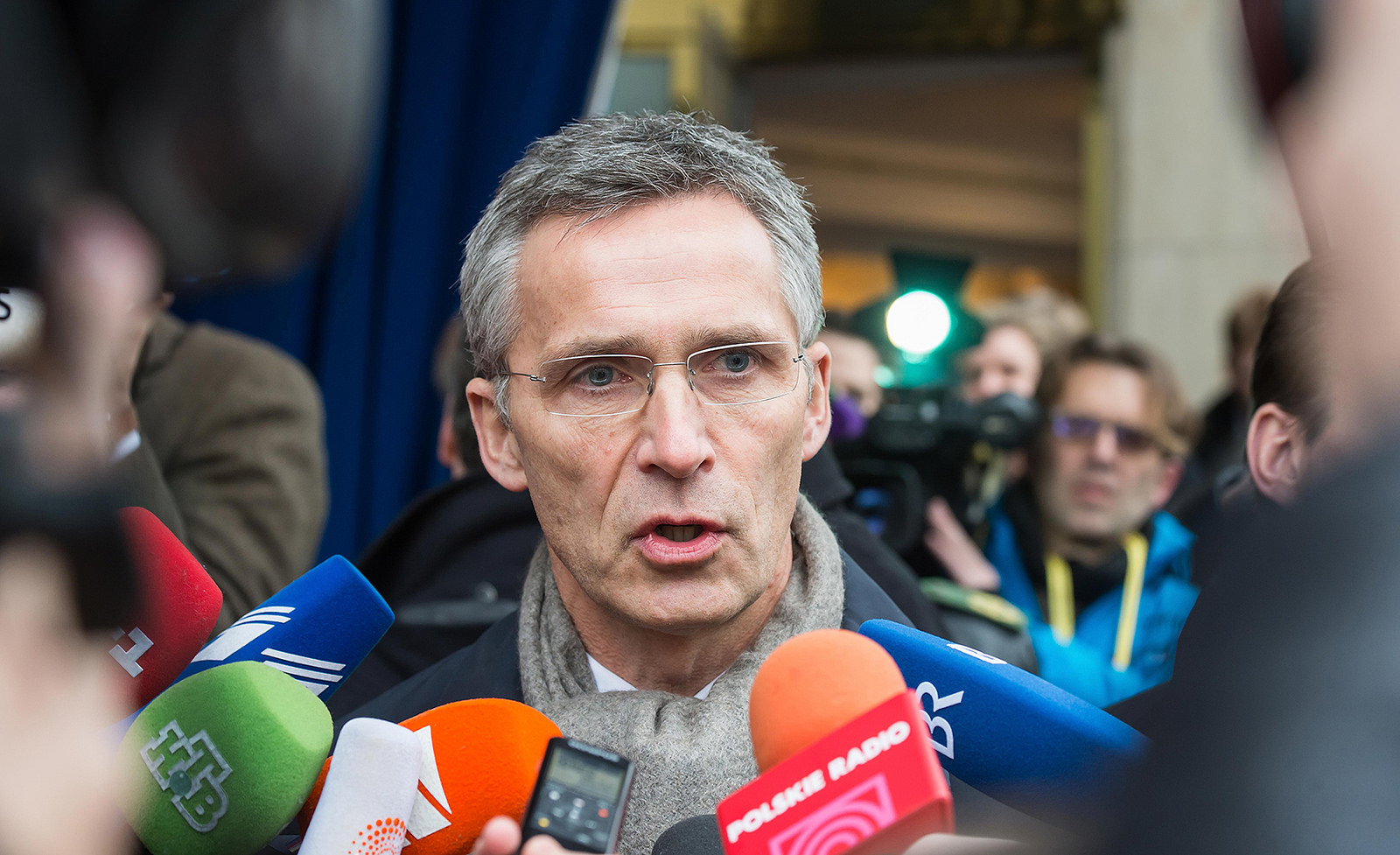
There is much talk of Russia as a rising naval power, with its seizure of Crimea, its abrogation of a 2010 agreement inked with Kiev over basing rights, and its planned expansion of its Black Sea Fleet. Some analysts predict that with Crimea’s access to energy and other natural resources, as well as its ability to reroute energy corridors, this could tilt the regional balance of power in Russia’s favor and threaten naval powers like Turkey, which is watching events on the Black Sea with a wary eye.
But Russia is not a rising power. The IMF says Russia is already in recession and is expected to lose $100 billion in capital outflows this year as part of the unfavorable security environment and Moscow’s failure’s to enact structural reforms. Though its conventional forces have become more modernized and agile since the 2008 Georgia war, they remain plagued by corrupt officers and poor conscripts with low troop morale.
It is commonly heard that Russia acquired Crimea because of the strategic importance of its Black Sea Fleet. Rather than renegotiate the leasing rights every few years and face restrictions on the size of its fleet, now Moscow can rest easy, confident its access to a warm-water port is assured. But so what? Western analysts tend to oversell the importance of Russia’s naval assets. The Black Sea Fleet is the smallest of its four fleets. Sure, the desire for a warm water port has motivated Russian wars going back centuries. But the current state of its fleet is in disrepair, with many of the frigates dating back to the Brezhnev era. As New York University’s Mark Galeotti told the Washington Post, “The Italian navy alone could easily destroy it.” Its 2,500 marines there are hardly an elite force and better suited to fighting pirates off Somalia’s coast or Georgia’s puny navy than fighting, say, NATO. Russia’s roughly 200-300 strong spetsnaz, or special forces, stationed there are a more formidable force, but still nothing that would withstand a NATO attack.
That is not to say that the Crimea or Russia’s navel presence is unimportant to the regional balance of power. Russia deployed a missile cruiser off the coast of Syria last year when tensions heightened ahead of America’s rumored intervention. Russia is planning on rebuilding the fleet with new frigates, submarines and an amphibious vessel. Finally, as Adam Klus notes, its new acquisition of Crimea, along with its Iskander surface-to-surface tactical ballistic missiles, allows Russia to project both its air and naval power more readily against Eastern Europe, the Balkans, and Turkey, the dominant naval power in the region. Not without reason have a few analysts raised the specter not of 1914 but 1853, when Russian military hijinks in the Black Sea sparked the Crimean War. Turkey’s temporary stoppage of its $3 billion National Warship project could not have come at a worse time. As Michael Tanchum notes in the Jerusalem Post, prior to the annexation of Crimea, Russian and Turkish naval power were of relative parity (Russia’s Black Sea Fleet consisted of 24 major surface combatants and one diesel submarine, while Turkey’s major naval assets consist of about 24 surface combatants and 14 submarines). But, according to Tanchum the “parity is illusory as it is unlikely that Turkey would be able to deploy all or most of its naval assets in a Black Sea conflict.”
Still, overhyping Russia’s ability to project power or embellishing its attachment to a port is a long-held ploy some policymakers in Washington use to avoid confrontation or intervention. Consider all the importance we were told Russia placed on Tartous, its dilapidated port in Syria. The idea that there is some kind of symbolic attachment to the port, even though along with Cuba it is one of the only Russian ports remaining outside the former Soviet space, was grossly exaggerated. (It’s not that it’s unimportant to Moscow but it’s arguably not a vital interest to Moscow like, say, Crimea).
Much of what irks us most about Russia is not its land grab per se but rather the way it goes about seizing territory. Process matters when it comes to international norms. Had Russia gone before the United Nations, brought in independent monitors, and then held a genuine referendum to make Crimea independent or a part of Russia, there would be less howling from the West. It’s when, say, Russian divers plant a flag beneath the seabed of the North Pole when the West starts scratching its head. “This isn’t the 15th century,” as Peter MacKay, Canada’s foreign minister, told CTV television at the time. “You can’t go around the world and just plant flags and say ‘We’re claiming this territory.’” Flash-forward seven years and Secretary of State John Kerry said about the Crimean annexation, “You just don’t in the 21st century behave in 19th century fashion by invading another country on completely trumped up pre-text.”
Regardless of which century Russia is apparently in, the West should not ignore its advances in the Black Sea. But nor should we let such naval expansionism paralyze us. Obama is right that such maneuvers are a sign of Russian weakness, not its rising stature (Crimea is rumored to become a Black Sea version of Macao, and a naval war would be bad for the gambling business). Were Russia to fight a 21st century war against any major power involving its naval forces, most analysts agree, it would surely lose.







2 comments
What port in Cuba?
‘Had Russia gone before the United Nations, brought in independent monitors, and then held a genuine referendum to make Crimea independent or a part of Russia, there would be less howling from the West.’
Oh, come now. Last year, the Russian leadership were playing the game according to the rules in Ukraine. As long as there were reasonably democratic elections, they could count on a strong pro-Russian and neutral vote to keep Ukraine from becoming a Western pawn (like, joining NATO). Those rules were broken in a violent coup by a collection of people including specifically anti-Russian nationalists, and the attempted installation of a pro-Western government pushed by the U.S. and its allies. The Russian leadership learned quickly that the West’s commitment to democracy was pretty shallow, as if they and we didn’t know already, and started playing the new game of coups, masked gunmen, riots, and threats. Kerry’s remark, quoted above, is ludicrous given the recent military adventures of his own country and is widely, and justly, derided.
A higher level of propaganda than this is going to be needed to swing any intelligent, informed opinion.
It is a great misfortune that the Ukrainian people cannot work out their own affairs without external interference. The fact that they cannot is not the fault only of the thugs in Moscow.